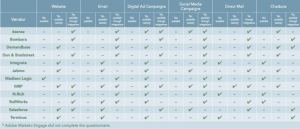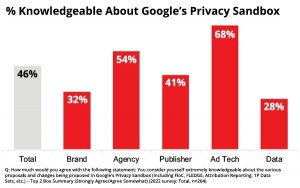Did you know that more women than men start small businesses?
It’s true. In fact, not only are the number of women-owned firms steadily increasing at nearly 2X the national average, these businesses are also leading growth in eight of the top 13 industries in the United States. Inspiring statistics, to be sure; they speak both to the ingenuity and resolve of female entrepreneurs, as well as the immense potential for success that they possess.
Which is all the more reason why this next set of figures is so disheartening: while women-owned businesses are growing faster than ever, they contribute just fewer than four percent of the total national revenue (about the same amount contributed in 1997) and are 5.6 percent more likely to fail than businesses owned by men.
So why—despite the overwhelming strides that female business owners have made in the last decade—do these entrepreneurial powerhouses face such harrowing odds? The answer (at least in part) is one you might not expect. Although things like gender bias and lack of funding are pervasive barriers for women in business, there’s one key element holding women back that is within our control to change now.
The answer is: women. That’s right—I’m talking about us.
Now, I’m not saying that women are actively keeping other women from flourishing throughout the business world. But a serious lack of purposeful support systems is keeping many businesswomen from the integral networks of female professionals they need to learn, grow, and advance.
It is my experience that women do not have access to the same extended (and rich!) support networks of mentors and peers that men enjoy. Because of this, their businesses and opportunities for professional growth are less likely to thrive and prosper. While much has been made about the lack of opportunities for women in STEM, the struggle is real for all women in virtually every industry and in every kind of business capacity—from entrepreneurs to those in the corporate space and beyond.
Today, only 14.2 percent of the top five leadership positions at the companies in the S&P 500 are held by women; out of those 500 companies, there are only 24 female CEOs. Worse still, only 21 percent of senior business roles in all of the United States today are occupied by women—a one percent decrease since last year! The alarmingly low number of high-ranking professional women isn’t just a sad commentary on the workforce of today; it also has far-reaching (and potentially detrimental) implications for bridging the gap between growth in the corporate space and success at the entrepreneurial level.
Corporate women can successfully lead new startups, start their own ventures, or support other entrepreneurial women by connecting them with the corporate world. In addition, key relationships established within the corporate setting help to provide a network of support, insight, and access that strengthens entrepreneurial clout. In the tech space where I work, this support ecosystem is an essential pathway for learning about and introducing new kinds of solutions to organizations.
Men, I’ve found, find it easy to reach out to these networks for support. For example, I frequently have male contacts asking for referrals and new business opportunities, whereas women that I know (whose abilities and ideas are amazing) seldom reach out to me to sell their ideas/products or get introductions to people in my network. I’m also constantly approached by men with new startups looking for opportunities to connect and establish key partnerships—I’m NEVER approached for similar inquiries by women entrepreneurs.
It certainly makes me wonder how much of that is my doing. Why am I waiting to hear from female entrepreneurs instead of proactively reaching out, building connections, and spotlighting these opportunities for women in the industry?
Indeed, why aren’t more women stepping into these critical sponsorship roles? After all, we’ve all been there—we know how hard it can be for women to grow, thrive, and succeed in business. Many of us even have first-hand knowledge of how beneficial role models, mentors, and sponsors can be. And yet, the numbers at both ends of the pipeline continue to dwindle.
The gender gap—in corporations, small businesses, or otherwise—isn’t going away, nor will it get better without our continued effort. It’s time for all women (especially those who are finding success in business and can use their experience to support others) to pay attention and actively create opportunities for positive change. It’s something that can make a huge difference. In a recent study, researchers found that the increased presences of local female leaders helped to raise the career aspirations and educational performance of young women—effectively erasing the gender gap for both.
The simple truth is, no successful business person ever found success on their own. Every Zuckerberg or Branson owes some part of their accomplishments to someone who helped them gain new perspectives, reach higher, and learn what it takes to “make it.” Fortunately for these visionary men—and all the ones waiting in the wings behind them—they often have a plethora of successful role models to choose from. It’s time for women to step up and be there for each other in the same way. We need to realize that success for all women starts with establishing connections, nurturing relationships, supporting each other’s dreams, and proactively changing the conversation about how women approach success.
It’s time to be fearless.
It’s time to stand proud and kick ass on our own terms.
It’s time to shout out loud that more women in businesses is a win-win for everyone.
And while the potential for failure is something we all understand, it’s the potential for success that we all need to share with unyielding determination. What are we waiting for?
“Individually, we are one drop. Together, we are an ocean.” — Ryunosuke Satoro
Business & Finance Articles on Business 2 Community(51)






